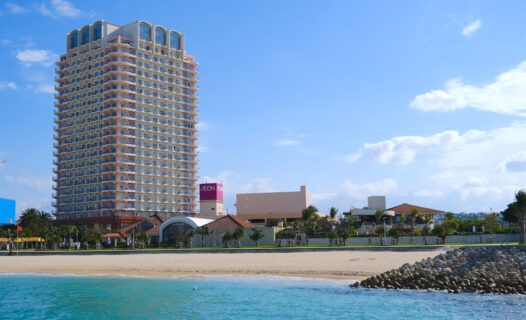Phuket, Thailand’s largest island, is a tropical paradise that has captured the hearts of travelers from around the globe. From its stunning beaches and vibrant nightlife to its rich culture and delectable cuisine, it’s no wonder that Phuket is a top destination for sun-seekers and adventure enthusiasts alike. But before you pack your bags and book your flights, there’s one little detail that can make a big difference in your travel experience: the correct pronunciation of “Phuket.” Trust us, knowing how to pronounce Phuket correctly can open doors, foster connections, and even lead to some delightful interactions with the locals!
The Right Way to Pronounce Phuket: A Fun Phonetics Breakdown
So, how do you pronounce Phuket? Well, it’s a bit of a linguistic puzzle! The correct pronunciation is “Poo-ket” or “Poo-get.” The first syllable rhymes with “boo,” and the second syllable sounds like “ket” or “get,” depending on your accent. To help you nail it, think of it like this: “Poo” + “ket” (like a basket) or “Poo” + “get” (like a friendly invitation). For those who love phonetic spellings, here’s a simple breakdown: /puːˈkɛt/ or /puːˈɡɛt/. You can find audio resources online to practice until you feel confident!
Now, let’s address the elephant in the room—the common mispronunciations that often lead to some giggles. Many travelers mistakenly say “Fookit” or “Foo-ket,” which can lead to some rather amusing conversations. Imagine asking a local for directions and hearing them chuckle in response! Mispronouncing Phuket can sometimes lead to playful banter, but it’s always best to get it right to avoid any confusion.
Cultural Significance of the Name Phuket
The name “Phuket” has an interesting origin, derived from the Malay word “Bukit,” which means hill. This is quite fitting, as the island is characterized by its lush hills and stunning landscapes. The pronunciation of Phuket can vary slightly depending on local dialects, with some locals adding their unique twist. This variation adds a layer of cultural richness to the island, reflecting the diverse influences that have shaped its identity over the years.
As you explore Phuket, you might hear different pronunciations from locals. This is a beautiful reminder of how language evolves and how it can reflect cultural identity. Anecdotes abound about tourists attempting to pronounce Phuket in various ways, often leading to friendly corrections and shared laughter. Embracing these moments can deepen your connection to the local culture, making your visit even more memorable!
Common Mispronunciations and Their Impact
Speaking of mispronunciations, let’s take a closer look at some of the most frequent offenders. You might hear travelers say “Fookit” or “Foo-ket,” which can lead to some hilarious misunderstandings. One traveler recounted a story about asking for recommendations at a local restaurant and accidentally saying “Fookit” instead of Phuket. The waiter burst into laughter and playfully corrected them, turning an awkward moment into a delightful exchange.
These little slip-ups can lead to funny situations or even minor misunderstandings, but they also serve as great icebreakers! Locals often appreciate the effort, and a shared laugh can be a fantastic way to connect. So, don’t be afraid to try your hand at the pronunciation, and if you stumble, just smile and enjoy the moment!
As you prepare for your adventure, keep these playful mispronunciations in mind, and remember that a little humor goes a long way in building rapport with the locals.
Language Basics for Beginners: Thai Language Pronunciation Essentials
Ready to impress the locals with your Thai language skills? Let’s get started! Thai is a tonal language, which means that the pitch at which you say a word can change its meaning. For example, the word "ma" can mean "come," "dog," or "horse," depending on how you say it. This might sound tricky, but don’t worry—just a little practice will help you pick it up!
When it comes to pronunciation, here are some key points to keep in mind:
- Tones Matter: Thai has five tones: low, mid, high, rising, and falling. Make sure to listen closely to how locals pronounce words and try to mimic their intonation.
- Consonants and Vowels: Thai has a unique set of consonants and vowels that can be quite different from English. Pay special attention to sounds like “ng” and “ai,” which are common in Thai words.
- Practice Makes Perfect: Use language apps or online resources to hear pronunciations. Repeat after them until you feel comfortable!
As you explore Phuket, you’ll find that knowing a few basic phrases can be incredibly helpful. Here are some essential Thai phrases to get you started:
- Sawasdee krub/kah (สวัสดีครับ/ค่ะ) – Hello (male/female)
- Khop khun krub/kah (ขอบคุณครับ/ค่ะ) – Thank you (male/female)
- Chan chao Phuket (ฉันชอบภูเก็ต) – I love Phuket!
By incorporating these phrases into your conversations, you’ll not only sound like a pro but also create a warm connection with the locals. They’ll appreciate your effort, and who knows, you might even get some insider tips on hidden gems around the island!
Engaging with Locals: Phrases to Enhance Your Phuket Experience
Now that you have the basics down, let’s dive into some fun and engaging phrases that will make your interactions with locals even more enjoyable. Using the right words can turn a simple exchange into a memorable experience.
Here’s a list of essential phrases to keep in your back pocket:
- Chao wan dee (สวัสดี) – Good morning
- Rao ja bpai nai? (เราจะไปไหน?) – Where are we going?
- Mai ow (ไม่เอา) – No, thank you (perfect for when vendors are trying to sell you something)
- Khun suay mak! (คุณสวยมาก!) – You are very beautiful!
Using these phrases will not only enhance your experience but also show that you respect their culture. Locals love it when visitors make an effort to speak their language, even if it’s just a word or two!
Don’t hesitate to use the correct pronunciation of “Phuket” when chatting with locals. It’s a great conversation starter and a way to show your appreciation for their culture!
Audio and Visual Aids: Learning Pronunciation Effectively
Want to sound like a local? Audio and visual aids can make all the difference! There are countless resources available that can help you master the pronunciation of Thai words, including “Phuket.” Here are some recommendations:
- Language Learning Apps: Apps like Duolingo or Pimsleur offer pronunciation practice and interactive lessons.
- YouTube Tutorials: Search for Thai pronunciation videos to hear native speakers and follow along with their mouth movements.
- Pronunciation Quizzes: Websites like Quizlet have flashcards and quizzes that can help reinforce your learning.
Listening to native speakers is one of the best ways to grasp the nuances of pronunciation. Try repeating phrases after hearing them to improve your accent and confidence!
Fun Facts and Trivia about Phuket
Did you know that Phuket is not just about beaches and nightlife? This island has a rich history and culture that makes it truly unique. Here are some fun facts that might surprise you:
- Phuket was once a major trading port, attracting merchants from all over the world!
- The island is home to the famous Big Buddha statue, which stands 45 meters tall and offers stunning views of the island.
- Phuket hosts the Vegetarian Festival every October, featuring colorful parades and traditional rituals.
These tidbits can be great conversation starters with locals and fellow travelers alike. Plus, they connect back to the importance of pronunciation—knowing the right words can help you ask about these fascinating aspects of Phuket’s culture!
Festivals and Events: Celebrating Phuket’s Culture
Phuket is alive with festivals and events throughout the year, showcasing the island’s vibrant culture. From the lively Songkran (Thai New Year) celebrations to the mesmerizing Loy Krathong festival, there’s always something happening!
During these events, locals often use traditional phrases and greetings. Practicing these can help you blend in and truly enjoy the festivities. For instance, during Songkran, saying “Sawasdee pee mai” (Happy New Year) will surely earn you smiles from the locals!
Additionally, locals appreciate it when visitors attempt to pronounce Phuket correctly during these celebrations. It can lead to delightful interactions and maybe even an invitation to join in the fun!
Practical Travel Tips for Visiting Phuket
Before you head off to explore the wonders of Phuket, here are some practical travel tips to ensure you have a fantastic time:
- Best Time to Visit: The ideal months to visit are from November to February when the weather is cooler and drier.
- Stay Hydrated: The tropical climate can be quite humid, so drink plenty of water and wear sunscreen!
- Respect Local Customs: Always be polite and respectful, especially when visiting temples or local homes.
By keeping these tips in mind, you’ll be well-prepared to enjoy all that Phuket has to offer. And don’t forget to practice your pronunciation along the way!
Transportation in Phuket: Getting Around with Confidence
Getting around Phuket is a breeze with various transportation options available. Whether you prefer to explore on foot, rent a scooter, or hop in a tuk-tuk, there’s something for everyone!
When communicating with drivers, using the correct pronunciation of “Phuket” can make a big difference. Instead of pointing at a map, confidently saying “Phuket Beach” can help ensure you get to your destination without any confusion. Plus, drivers often appreciate it when tourists make an effort to speak Thai!
Here are some transportation options to consider:
- Tuk-tuks: A fun way to travel short distances! Just remember to negotiate the fare before hopping in.
- Songthaews: These shared taxis are a budget-friendly option for getting around the island.
- Motorbike Rentals: If you’re feeling adventurous, renting a scooter is a popular way to explore.
Whichever mode of transport you choose, practicing the pronunciation of Phuket will enhance your experience and help you connect with the locals!
Seasonal Insights: Best Times to Visit Phuket
Phuket’s climate can vary throughout the year, so knowing the best times to visit can help you make the most of your trip. The peak season runs from November to February, offering pleasant weather and vibrant festivities.
During the rainy season from May to October, you can often find fewer crowds and lower prices. Just be prepared for sudden downpours! Regardless of when you visit, saying “Phuket” correctly will undoubtedly enhance your interactions with locals, whether you’re discussing the weather or asking for recommendations.
Commonly Asked Questions (FAQs) about Phuket Pronunciation
Curious about how to pronounce Phuket? Here are some frequently asked questions that travelers often have:
- How do you say Phuket? The correct pronunciation is “Poo-ket” or “Poo-get.”
- What are some common mispronunciations? Many people mistakenly say “Fookit” or “Foo-ket.”
- Does pronunciation vary among locals? Yes, some locals may have their unique twists, reflecting the island’s diverse culture.
These questions can help clarify any uncertainties about pronunciation and encourage you to engage more confidently with the locals.
Now that you’re equipped with all these tips and insights, it’s time to put them into practice! Embrace the culture, enjoy the stunning scenery, and don’t forget to say “Poo-ket” when you’re chatting with the friendly locals. Happy travels!





















